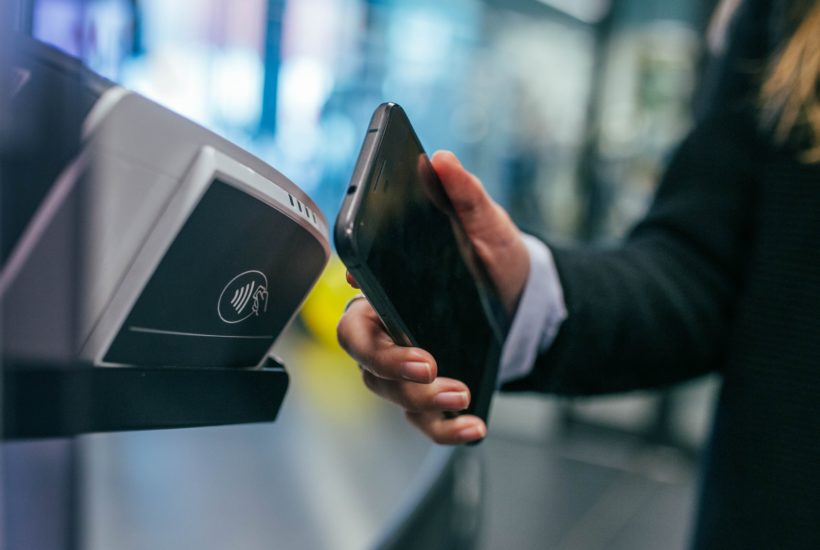Featured
Fintech will lower bank transaction costs in Brazil
The Fintech sector in Brazil is growing rapidly with customer numbers increasing every minute. From opening accounts to credit profiling, fintech startups are working on various services that traditional banks offer, and changing the business models in the financial industry. The possibility for fintech companies to act on tax payments will reduce the transaction cost for users.

According to market professionals, as of this year, it will be possible to pay consumer bills and taxes through digital banks and fintechs in Brazil. This increases competition, reduces costs for the end customer and gives easier and more convenient payment options. This is the expectation after the government launched the first measures to dismantle the concentration of these transactions in big banks.
For more insight and daily updates, download our Born2Invest mobile application to check the latest business news in fintech.
Local governments and municipalities currently only have agreements with large banks to collect guides and taxes. Similarly, utilities (electricity, gas, water, and telephone) have set up their receiving systems in agreements only with banking institutions.
This resulted in the creation of a bottleneck, which forces consumers to go through banks when it comes to paying consumer expenses, taxes, and fees. Currently, there are digital banks and fintech startups that offer these kinds of services. However, when it comes to liquidating the operation, these companies also have to go through a banking institution.
Large banks stand in the middle
According to the most recent balance sheet data from banking institutions, charges for federal and consumer bills were provided by the five largest banks in Brazil with revenues of nearly R$9 billion from January to September 2019 alone.
Last week, the Brazilian Ministry of Economy authorized the payment of all federal taxes and fees through fintech startups, broadening the range of companies that could offer this service to consumers.
The Central Bank has already stated that it will continue with these changes by creating rules that will allow digital financial companies to settle their clients’ accounts directly at the Interbank Payment Chamber (CIP), without having to leave a toll at a large bank. These plans are to come into action later this year.
More competition with lower costs
The controlling partner of JL Rodrigues, Carlos Átila & Consultores Associados, José Luiz Rodrigues commented: “With more companies operating, there will be more competition, and as the disputes grow, the possibility of reducing end costs for the consumer will increase.”
According to Luiz Rodrigues, the same cost reduction movement that occurred in segments such as card acquiring or investment fund managers will be repeated in other financial services.
In the card market, for example, the Rediscount Rate (MDR) fell from 2.53% ten years ago to 1.86% in 2019. In the investment fund market, the average management fee in fixed income funds fell from 3.65% in 2010 to 1.93% in September 2019 (according to the most recent public data), in portfolios with an initial contribution of up to $238 (R$1,000).
Freedom for the end-user
For Diego Perez, director of ABFintech (Brazilian Association of Fintechs), the direct access of fintech companies to the bill payment system for governments and utility companies, will open doors for a range of other companies that can collect taxes. The executive stated: “This will give the end-users freedom to choose the most convenient way to pay their bills.”
Febraban (from the Brazilian Federation of Banks) said in a note that an improvement of the tax collection system and utility bills is in discussion with the Central Bank. “The change is part of the process of improving and modernizing the collection system,” said the country’s bank representative.
Technologies are ready to facilitate
Marlei Silverio, director of New Business at PagSeguro PagBank, said that the government’s measure is positive because it removes barriers that currently prevent higher access for fintech startups to some services. Marlei states: “We already have the technology ready to operate in this market, but we end up having to partner with a large bank to have access to the service.”
According to the executive, the possibility for fintech startups to act in the segment of tax payments and consumption, without having to go through the systems of large banks, will reduce the cost of intermediation for the client.
Clients may split accounts
The professionals of the sector highlighted that, besides the reduction of costs, the entrance of fintech startups in this segment will allow for the launching of solutions that expand the ways of paying taxes, fees, and bills. “We can have facilities such as installment plans and greater usability, in which the person does not have to go to a website to make a payment, print a ticket and look for an agency,” said the executive of PagSeguro PagBank.
According to Taki Payments partner, Diego Cuoco, the standard today for those who have tax or consumption bills to pay, is to pay off the shortfall in cash, especially when it comes to overdue bills. “Competition also brings innovation to inefficient sectors,” he added.
The Fintech company, which started operating in 2018, launched the solution that connects its platform to the payment systems of several governments. This way, they began to offer consumers the possibility of installment payments, such as IPVA or delayed taxes and consumption accounts. “We already have the solution working, but in the current structure, where there are intermediaries, such as banks, we have costs that could be reduced,” Cuoco stated.
__
(Featured image by Jonas Leupe via Unsplash)
DISCLAIMER: This article was written by a third party contributor and does not reflect the opinion of Born2Invest, its management, staff or its associates. Please review our disclaimer for more information.
This article may include forward-looking statements. These forward-looking statements generally are identified by the words “believe,” “project,” “estimate,” “become,” “plan,” “will,” and similar expressions. These forward-looking statements involve known and unknown risks as well as uncertainties, including those discussed in the following cautionary statements and elsewhere in this article and on this site. Although the Company may believe that its expectations are based on reasonable assumptions, the actual results that the Company may achieve may differ materially from any forward-looking statements, which reflect the opinions of the management of the Company only as of the date hereof. Additionally, please make sure to read these important disclosures.
First published in UOL, a third-party contributor translated and adapted the article from the original. In case of discrepancy, the original will prevail.
Although we made reasonable efforts to provide accurate translations, some parts may be incorrect. Born2Invest assumes no responsibility for errors, omissions or ambiguities in the translations provided on this website. Any person or entity relying on translated content does so at their own risk. Born2Invest is not responsible for losses caused by such reliance on the accuracy or reliability of translated information. If you wish to report an error or inaccuracy in the translation, we encourage you to contact us.

-

 Biotech1 week ago
Biotech1 week agoUniversal Nanoparticle Platform Enables Multi-Isotope Cancer Diagnosis and Therapy
-

 Fintech2 weeks ago
Fintech2 weeks agoRuvo Raises $4.6M to Power Crypto-Pix Remittances Between Brazil and the U.S.
-

 Impact Investing4 days ago
Impact Investing4 days agoMainStreet Partners Barometer Reveals ESG Quality Gaps in European Funds
-

 Biotech2 weeks ago
Biotech2 weeks agoEurope’s Biopharma at a Crossroads: Urgent Reforms Needed to Restore Global Competitiveness

























